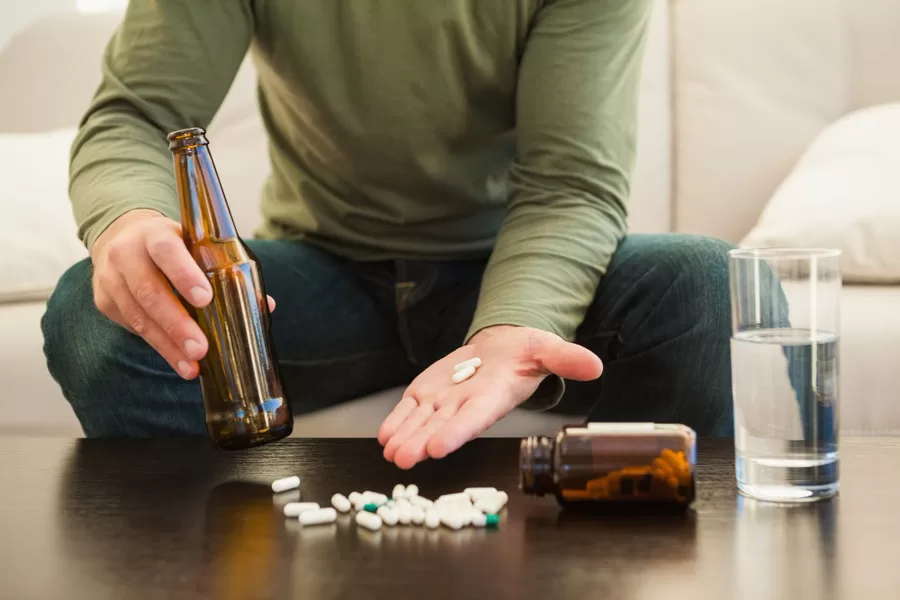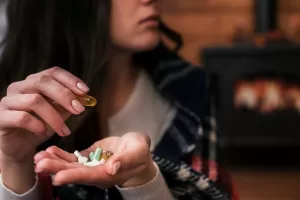As a general rule, mixing alcohol with medicines is a dangerous idea. Still, the exact result depends much on the type of the drug, as well as on the condition of the patient and the disease that was treated. Here we are going to discuss in detail the mixing alcohol and Flagyl also known as metronidazole. This combination may provide quite pronounced adverse effects. Thus, let us discover the reasons.
What is Flagyl
Flagyl or metronidazole belongs to the group of synthetic antibiotics called nitroimidazoles. It was the first one in this group and was introduced into the clinical practice in the middle of the XX century.
Since that time, various scientific investigations have been conducted in order to prove its efficiency. Nowadays Flagyl or metronidazole is fully backed by science and we can explain in detail the mechanism of its action, as well as the spectrum of activity, required dosage and duration of treatment, as well as side effects and possible risks.
How Flagyl works
Inside the body, the nitro group of this medicine is hydrogenated and the created compound interacts with bacterial cells and prevents them from replicating their DNA. Thus, bacteria cannot reproduce and grow, and subsequently, they die.
This mechanism requires some time to act and reveal all its strength. Therefore, the antibiotic must be taken on average from 5 to 10 days in the recommended dosage. In this case, its concentration becomes enough to kill all the bacteria and cure the disease.
What Flagyl is used to treat
Flagyl is the most effective against various anaerobic bacteria and protozoa, namely Trichomonas vaginalis, Gardnerella vaginalis, Giardia intestinalis, Entamoeba histolytica, anaerobic bacteria (Bacteroides, Fusobacterium, Veillonela), some gram-positive bacteria (Eubacterium, Clostridium, Peptococcus, Peptostreptococcus) and Helicobacter pylori.
It is successfully utilized in the treatment of the infections of:
- abdomen;
- bones and joints;
- central nervous system;
- respiratory system;
- sexually transmitted infections.
Apart from the oral and injection dosage forms, it is also produced as a cream, gel and lotion for the treatment of skin infections. There is also a vaginal gel for bacterial vaginosis cure.
What Happens When You Mix Alcohol and Flagyl?
There are certain risks of adverse effects while combining flagyl with alcohol. The thing is this medicine hinders the metabolism of ethanol and this leads to various acute and chronic consequences.
Acute Effects
As a result of drinking alcoholic beverages during the treatment with metronidazole, the patient may experience the following unpleasant side effects:
- abdominal cramping;
- nausea and vomiting;
- headaches;
- blood pressure drop;
- seizures.
The intensity of these adverse effects may be quite different and largely depends on the dosage and condition of the patient. Still, they can reach the life-threatening level.
Reduced Effectiveness
As both alcohol and flagyl are metabolized in the liver, the efficiency of the treatment may be reduced due to the alcohol intake. The system of enzymes could not work properly in this case and is overloaded. Thus, the body may start to eliminate the drug faster to reduce the load.
Risk of Side Effects
Moreover, we should take into account certain side effects that are associated with flagyl itself. Thus, this medicine may cause:
- digestive system issues like nausea, vomiting, metallic taste, changes in taste and appetite, cramping abdominal pain, constipation or diarrhea;
- central nervous system disorders, including headache, vision impairment, increased excitability, sleep disturbances, dizziness, depression, seizures, hearing loss, disorientation and fainting;
- changes in the blood formula;
- thrombophlebitis;
- allergic reactions;
- arthralgia.
Some of these adverse effects may become more pronounced due to the interaction with alcohol. They are not always acute but may transform into chronic diseases and other unpleasant conditions that will require more treatment.
In addition, do not forget about the overloaded liver, the functioning of which may also get hindered.
What are the Interactions Between Flagyl and Alcohol?
It is important to understand the mechanics of alcohol and flagyl interaction to understand the danger of this combination. They are both transformed in the liver by the same enzymes. That is the reason for possible toxicity and pronounced side effects.
Can Flagyl and alcohol to be fatal?
When ethanol comes into the body with some alcoholic beverage, it goes to the liver, where the special enzyme transforms it into acetaldehyde. The latter is responsible for hangovers and other unpleasant feelings that may follow the bright party if one consumes too much alcohol.
The body copes with acetaldehyde via its transformation into acetate and elimination. In case, Flagyl happens to be present in the liver, it blocks the enzymatic system required for this step. As a result, acetaldehyde accumulates inside the body and provokes certain side effects like nausea and vomiting, headache, blood pressure drop, etc.
Actually, the same mechanism is utilized to treat alcohol addiction with some special medicines. However, the dosage here is crucial. Thus, a careless combination of alcohol and Flagyl may lead to severe adverse effects and even to a life-threatening situation.
The results can be fatal and even lead to death. There is no way to predict the response of each individual, so it is better not to risk and avoid such a combination.
When Can You Safely Drink Alcohol Again?
To stay safe, healthy and well-protected one should make a certain pause before consuming alcoholic beverages after the treatment with antibiotics.
In the case of Flagyl, the basic recommendation is to wait at least three days after the last dose of the antibiotic. If the patient used only topical dosage forms like gels and creams, the recommended period is one day.
Altogether, it is better not to hurry up on this issue. Follow the treatment scheme and visit the doctor after its completion. Then, he will give you a piece of advice on your further actions, including the possibility of consuming alcoholic beverages.
How to Take Flagyl Safely
As with all other antibiotics, Flagyl must be prescribed by the doctor according to the disease and the overall condition of the patient.
Dosage
The dosage is selected and prescribed individually. It may be from 250 to 500 mg of the medicine per day.
How long
The duration of the treatment with Flagyl may last from several days up to one week, ten days and more. Depending on the disease, the doctor controls the result of the treatment and selects the point when it becomes unnecessary.
Summary
In a nutshell, flagyl and alcohol consumption are incompatible. Consuming alcoholic beverages during the treatment is harmful to health, even if it goes without severe obvious side effects. In this case, the liver will have to transform both ethanol and metronidazole and the organ will be overloaded.
Therefore, do not neglect the doctor’s advice and do not combine alcoholic beverages with medicines. This is both the protection measure and the chance for the body for a quick recovery.
FAQ
Can you drink alcohol while taking Flagyl?
No, it is absolutely prohibited due to the existing risks and possible side effects.
How long after taking Flagyl can you drink alcohol?
One should finish the course of Flagyl intake, wait at least three more days and only then start to consume alcoholic beverages. If the antibiotic was utilized only as a topical remedy, then one should wait at least one day.
What happens if you drink on metronidazole Flagyl?
Severe acute side effects may appear including nausea and vomiting, decreased blood pressure and headache, and even seizures.
What antibiotics should you not drink alcohol with?
It is prohibited to combine all antibiotics with alcoholic beverages, as well as all other medicines. Such a mixture may lead to severe and even life-threatening adverse effects.
Is Flagyl a strong antibiotic?
Yes, this medicine is utilized to treat various anaerobic infections and protozoa. It is highly effective and must be utilized accurately and only according to the prescription.



